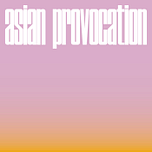
As the genocide in Gaza continues, I repeatedly encounter familiar patterns in conversations here in Germany, whether through personal interactions or by observing others. These patterns often stem from carelessness, ignorance, or the rhetoric of colonial apologists.
At this time of writing, northern Gaza has endured 50 days of total siege. No food supplies have entered, leaving hundreds of truck drivers stranded at the border. Necessities like medication, soap, and winter clothing remain unavailable, leaving 500,000 people fully besieged as the occupying terrorist state maintains its blockade.
Navigating boundaries has been a difficult lesson for me this year, especially in discussions about settler colonialism. Professors Lara Sheehi and Stephen Sheehi's work in Psychoanalysis Under Occupation has been instrumental in revealing this structure. Sheehi reminds us of psychic intrusions, deliberate psychological tactics aimed at disrupting solidarities and maintaining colonial dominance. Sheehi calls for reorienting psychoanalytic frameworks to address psychic life's socio-political dimensions and resist perpetuating systemic injustices.
But how?
To bring awareness to these dynamics, I’ve replicated a role-playing exercise to explore one typical interaction:
Person X raises the question of the “war” in the Middle East, framing it as “complicated.”
You, or Person Y, find this framing overwhelmingly problematic.
Person Z, hearing both positions, steps in to mediate, defending Person X and suggesting their intentions were misunderstood.
If you see yourself as Person Y in this scenario, how could you respond to keep the conversation focused, constructive, and rooted in moral principles?
Step 1 — The Fox’s Deception:
Like a fox masking its intentions, Person Z’s argument diverts attention from the core issue by framing the discussion as a debate over “solutions.”
Person Z’s opening provocation:
“I think you’re being a bit harsh on Person X. He admitted his wording wasn’t ideal, but he wasn’t trying to justify anything about genocide. He was just sharing his thoughts on the future of the region. Isn’t it better to focus on solutions, like the one-state or two-state debate, rather than pointing fingers?"
Analysis:
Person Z’s suggestion to “focus on solutions,” like on the one-state or two-state debate, is a false dichotomy that sidesteps the ongoing genocide since 1948. The two-state solution has been a central part of peace negotiations for decades but has failed due to power imbalances and continued violations of international law.
Historically, the partition of Palestine in 1947 was proposed by the United Nations Resolution 181, disregarding the rights and wishes of the Indigenous Palestinian population, who were excluded from the decision-making process. Person Z’s proposal perpetuates this pattern.
The framing of Palestine as a “problem” to be solved reflects a colonial mindset rooted in white supremacy, where European powers imposed their will without regard for local autonomy, historical context, or the humanity of the people involved. This narrative dehumanizes Palestinians and strips them of their agency.
The real question was never whether Israel should adopt a one-state or two-state solution. This framing is a distraction—a bad-faith argument rooted in a Red Herring fallacy that deflects accountability. The focus should instead be on Germany's responsibility for its genocidal crimes. After the Holocaust, Germany should have been debating whether to establish a one-state or two-state solution within its borders as reparation for the extermination of its Jewish citizens. By deflecting this burden onto Palestine, Germany perpetuated its antisemitic logic, with the support of Western Imperial nations, scapegoating Palestinians—who are themselves Semitic—as a continuation of the same fascistic system.
By centering "solutions" detached from the realities of occupation and systemic violence, Person Z reinforces this antisemitic narrative. This enables a so-called “democratic consensus” for the ongoing physical and psychological erasure of Semitic peoples—this time in British-mandated Palestine.
Person Y’s response: The Capybara’s Calm
“I understand that Person X may not have intended to justify anything about genocide. However, reframing the one-state or two-state debate as the central issue disavows Germany’s historical responsibilities and its role in colonial systems that dehumanize the Palestinian people. This framing, while common, avoids confronting the ongoing genocide and the systemic violence enabling it. This isn’t about finger-pointing—it’s about acknowledging the reality of what’s happening and addressing it with the precision and accountability it demands.”
Step 2 — The Elephant’s Memory
The weight of history cannot be ignored. Like the elephant, it moves deliberately, carrying the collective memory of past injustices and demanding that they inform our present actions.
Person Z’s follow-up provocation:
“I see what you’re saying, but don’t you think it’s unproductive to focus on Germany’s historical role when we’re talking about solutions? Wouldn’t it be better to talk about what can be done now?”
Analysis:
Person Z suggests deprioritizing Germany's historical role, framing history as a distraction from finding “solutions.” This reflects a denial or avoidance of intergenerational responsibility and the systemic nature of the violence in question.
Germany’s Holocaust history and its colonial legacies did not begin with October 7, nor with World War II and its infamous “Final Solution.” These events are part of a broader historical context shaped by European settler colonialism, antisemitism, and global power structures. The genocide that Palestinians face today is a continuation of these systems. There is a direct thread connecting the Berlin Conference of 1884–85, Germany’s genocide in Namibia, the Rwandan genocide, South African apartheid, and the ongoing genocide in Palestine.
Germany’s historical and economic support for Israel—rooted in Britain and Germany’s colonial legacies—is often framed as restitution for the Holocaust. Yet, it has consistently ignored the collateral harm inflicted on Palestinians. As beneficiaries of ongoing Imperial systems, Germans have inherited not only privileges but also responsibilities to address the systemic violence these systems perpetuate.
What is at stake is not just the lives and rights of the Palestinian people but also regional instability, the global climate crisis, and the strain of a potential WWIII. Germany’s colonial actions and genocide in Namibia established patterns of racialized dehumanization and land theft, which are echoed in Israeli settlement expansion. The Nakba of 1948—marked by the mass displacement of Palestinians—has not ended; it continues today and forms the foundation of a “final solution” today for Palestinians.
Colonial histories must be fully acknowledged for any viable solutions to emerge. As Arundhati Roy reminds us, focusing on “moving forward” without addressing root causes ensures that cycles of violence remain unchallenged and ultimately reemerge.
Person Y’s response: The Octopus’s Recall
“The insistence on focusing solely on solutions while framing them as false dichotomies—such as the one-state or two-state debate—is itself part of the problem. I’m open to discussing what can be done now, but meaningful solutions must begin with a recognition of the humanity harmed and an honest acknowledgment of the ongoing genocide. Without this recognition, any so-called solution risks perpetuating the same cycles of violence and dehumanization. Reconciliation starts with seeing the full picture and ensuring our framing doesn’t obscure it."
Step 3 — The Crane’s Balance
The crane stands poised, embodying the delicate balance between truth and comfort, justice and progress. In this step, we examine the tension between genuine accountability and the illusion of "productive" conversations.
Person Z’s provocation:
“But isn’t it important to keep the conversation productive? It feels like focusing too much on blame will derail the possibility of finding solutions.”
Analysis:
This statement deflects responsibility, disarms moral critique and centers comfort over truth. It conflates accountability with blame, using the latter as a rhetorical straw man to suggest that moral critique is inherently unproductive. Thus, it undermines the validity of Person Y’s position.
Person Z’s provocation aligns with liberalist tendencies, prioritizing progress and solutions over justice and structural change. It reflects a teleological fallacy, the idea that solutions can resolve systemic issues without addressing their foundational causes, and fails to engage with ethical responsibilities.
In Eichmann in Jerusalem: A Report on the Banality of Evil (1963), Hannah Arendt critiqued this dismissal, arguing that blame contributes to normalizing structural violence. Accountability and reflection are not obstacles to solutions but prerequisites for justice. In their seminal work Dialectic of Enlightenment (1944), Theodor Adorno and Max Horkheimer critique the modern obsession with instrumental reason—rationality employed purely to achieve ends, irrespective of ethical or moral considerations. This fixation on productivity and outcomes reflects a systemic prioritization of solutions over the examination of the underlying ethical failures that perpetuate systemic violence.
Instrumental reason, once a tool for human liberation, has become a mechanism of domination. It facilitates societal structures that privilege control and efficiency at the expense of genuine human emancipation. By detaching reason from its ethical foundations, modernity fosters a world where exploitation and oppression are rationalized as necessary for progress.
Person Y’s response: The Otter’s Precision
“Focusing on a ‘productive conversation’ is problematic without asking who benefits from said ‘productivity.’ For whom is this productive? Framing it this way often erases the lived experiences of those subjected to colonial violence and genocide. I agree that focusing solely on blame can feel ‘unproductive.’ However, addressing the full picture—including how these systems of violence were produced—is not about blame; it’s about responsibility. Without that recognition, any solution risks repeating the same erasures of humanity that created the problem in the first place."
Step 4 — The Cobra Strike
The cobra strikes decisively—precisely countering deflection and dismantling evasions of responsibility. In this step, we confront the sidestepping of collective accountability that upholds the status quo.
Person Z’s pushback:
“I see your point, but it seems like you’re asking for an impossible level of responsibility from people who weren’t personally involved in those historical actions. How can we move forward without getting stuck in the past?”
History is not a distraction. Maintaining historical accountability is not antithetical to moving forward. Reconciliation and healing are impossible without addressing past harms. Here, Person Z frames the demand for accountability as an “impossible level of responsibility.” Person Z reduces systemic critique to personal guilt, effectively sidestepping the structural nature of the problem.
By rejecting collective responsibility, Person Z absolves themselves and others of any obligation to address systemic issues, reinforcing the status quo. This perspective denies the reality of the privilege and harm of intergenerational violence.
Frantz Fanon, in The Wretched of the Earth (1961), reveals the tendency of colonizers and their descendants to demand “moving forward” without addressing the foundational violence of colonial systems. This demand is part and parcel of the oppressional structures it claims to transcend. Indeed, there is no such thing as a free lunch; bypassing the systemic violence that underpins colonialism is superficial progress.
Here, this “progress” implies a neutral stance. But neutrality in contexts of systemic harm inherently supports the status quo, currently, a genocide that has resulted in closer to the number of 186,000 deaths as of this writing, according to the world’s leading peer-reviewed medical journal, the Lancet.
This constitutes severe ethical evasion, as it neglects the inherent obligation to address harm when one benefits from unjust systems. Even Immanuel Kant’s principle of universalizability underscores this failure in Groundwork of the Metaphysics of Morals (1785):
"Handle nur nach derjenigen Maxime, durch die du zugleich wollen kannst, dass sie ein allgemeines Gesetz werde."
(Act only according to that maxim whereby you can at the same time will that it should become a universal law.)
Person Y’s response: The Honey Badger’s Tenacity
“I agree that we must avoid getting stuck in the past or building on resentment. However, true reconciliation requires justice. While individuals today may not be personally responsible for historical actions, they are recipients of the privileges and inheritors of the responsibilities those actions created. Acknowledging this inheritance is crucial—not to assign guilt, but to collectively examine and address the systems that perpetuate genocide and violence. Only by understanding and dismantling these systems can we stop the harm, achieve justice for all humanity, and create the conditions for reconciliation and collective healing."
Step 5 — The Owl’s Gaze
With its penetrating vision and nocturnal wisdom, the owl sees through the shadows of deflection and self-preservation. This step explores the avoidance of accountability disguised as concern for constructive dialogue.
Person Z’s disconcerted response:
“But if people feel attacked or blamed, doesn’t that make it harder to bring them into the conversation? How do you expect people to engage constructively if they feel like they’re being held responsible for things they didn’t do?”
This response reflects a psychological phenomenon called displacing emotional discomfort in the process of accountability. Rather than addressing the moral imperative to confront systemic violence, Person Z centers their own or others’ discomfort with blame. Here, emotional discomfort is used as a justification to avoid engaging with the underlying critique, prioritizing individual feelings over collective justice. This is a common response that reveals an underlying fear of guilt. Psychoanalyst Melanie Klein links this to anxieties about personal complicity or responsibility. Rather than engaging with this anxiety constructively, Person Z deflects it by reframing accountability as an attack.
This narrow reframing of anxious feelings, which shifts focus away from collective responsibility, obstructs reconciliation and justice. Such fragility amplifies perceived attacks or guilt, derailing essential discussions and hindering efforts to create meaningful change.
Hannah Arendt distinguishes between guilt (a moral burden tied to a specific action) and responsibility (an obligation to address the consequence of systemic harm). Ethical responsibility is not about personal blame but about recognizing one’s position within systems of privilege and taking steps to dismantle them.
Person Z’s circular reasoning argument assumes that avoiding blame is necessary to engage constructively but fails to recognize that constructive engagement requires accountability.
This focus on avoiding feelings of blame reflects a psychological defense mechanism rooted in ego preservation. Psychoanalytically speaking, the ego functions to maintain a coherent and acceptable self-image. The fear of blame or guilt threatens this image, leading to deflection and projection.
We externalize our discomfort by attributing the “attack” or “blame” to those who provide critique rather than acknowledging the systemic issues at hand. This projection shifts attention from collective harm to individual emotions, perpetuating a cycle of avoidance.
Shame arises when the ego perceives a rupture in its socially constructed identity (e.g., that we are fair and moral individuals). Melanie Klein argues that shame tied to complicity can lead to defensive splitting (such as binary, black-and-white or all-or-nothing thinking), where we may dissociate from aspects of ourselves that feel culpable and move towards avoidance of introspection.
For the Confucian Shengren (聖人), the path of the sage emphasizes cultivating ren (仁), which means compassion, to achieve justice. This requires emotional awareness and empathy. Moral action must arise from collective humanity rather than individual guilt. As Mengzi teaches:
惻隱之心,人皆有之。見孺子將入於井,皆有怵惕惻隱之心。
"The heart of compassion is the root of humanity (ren). When we see a child about to fall into a well, we cannot help but feel alarm and distress. This feeling is not for personal gain—it arises from our humanity."
(Mencius, 2A:6)
This awareness of others' suffering underscores our responsibility to act justly and protect life. Mengzi emphasizes our relationship with others, shifting the focus away from a solipsistic obsession with the self and toward a compassionate connection to the collective.
In Regarding the Pain of Others (2003), Susan Sontag asserts that witnessing atrocities creates an unavoidable moral obligation to act. She observes that,
“To designate a hell is not, of course, to tell us anything about how to extract people from that hell, how to moderate hell’s flames. Still, it seems a good in itself to acknowledge, to have enlarged, one’s sense of how much suffering caused by human wickedness there is in the world we share with others. Someone who is perennially surprised that depravity exists, who continues to feel disillusioned (even incredulous) when confronted with evidence of what humans are capable of inflicting in the way of gruesome, hands-on cruelties upon other humans, has not reached moral or psychological adulthood. No one after a certain age has the right to this kind of innocence, of superficiality, to this degree of ignorance, or amnesia.”
She emphasizes that the discomfort of witnessing cannot excuse inaction. The responsibility to respond arises not from direct causation but from the ethical weight of having borne witness to suffering.
Similarly, Emmanuel Levinas, in Totality and Infinity (1961), argues that ethical responsibility begins in the encounter with the Other, where the Other’s face commands recognition of their humanity. Levinas writes, “The face opens the primordial discourse whose first word is obligation (emphasis mea),” underscoring that to witness systemic harm is to be called into a moral relationship that transcends egoic fears of blame. In both accounts, witnessing is not a passive act but a moral imperative to respond actively to the suffering of others.
Person Y’s response: The Red Panda’s Reflection
“We must take our egos out of the equation. Right now, we are watching a live genocide on our phones. The purpose is not to dwell on shame or misery but to respond appropriately and, as you say, engage constructively. When we dissociate from our emotions out of fear of shame, we lose the ability to act. But if we lean into emotional awareness—rediscovering our empathy for ourselves and others—we can find the strength to engage meaningfully. We might not be personally responsible for the violence we witness, but as witnesses to crimes against humanity, we bear the responsibility to respond."
The Palestinians have long held a proverb:
الجار قبل الدار
(Choose the neighbor before the house)
How did the Europeans in kind respond to the Palestinian hospitality to those seeking refuge from European antisemitism? For this, they have been systematically displaced, oppressed, and exterminated.
This profound betrayal underscores the moral weight of witnessing. Palestinian generosity was met with European violence, their homes and lives stolen under the guise of European persecution. Yet, this proverb endures—a reminder of their unwavering humanity despite the horrors they face.
Witnessing such suffering does not absolve us—it obligates us to act in solidarity. As part of this collective human story, how will you honor their spirit and fulfill your responsibility to humanity?












